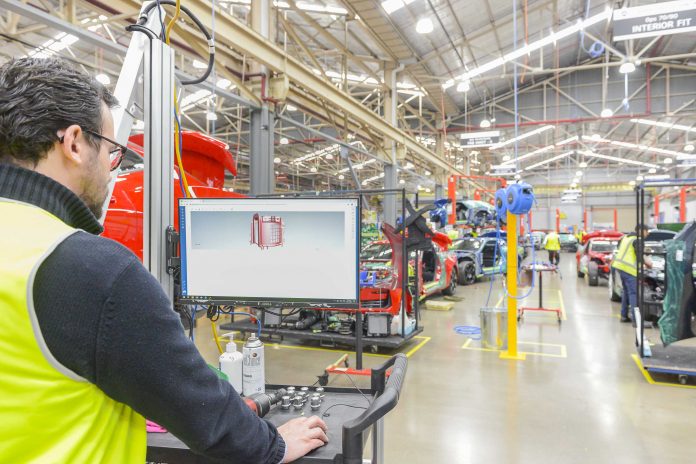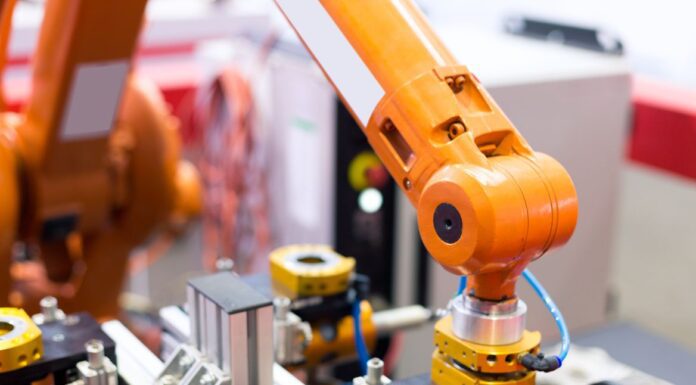
Media Release
Siemens and RMIT today announced the establishment of a ‘Industrial Digital Innovation Hub’ to help drive workforce transformation for Industry 4.0 in Australasian region.
The hub includes a significant hi-tech industrial software grant from Siemens, the largest industrial software company in the world, as well as support by the federal government to participate in an innovative trial of a new Industry 4.0 teaching model in higher education.
With these grants, RMIT joins a national network of universities driving change to help prepare students for the future of work.
Also today, the Federal Minister for Education, Dan Tehan, has announced the government will provide a grant of $1.2 million to enable RMIT to join a multi-university trial of an advanced apprenticeship-style Associate Degree in Digital Technologies (Industry 4.0). RMIT will join five other universities across Australia participating in the pilot, which will provide an opportunity for employees of local industry partners to gain skills in software applications, design and engineering methodologies, and practical problem solving approaches in advanced manufacturing.
This announcement reinforces the MoU commitment between Siemens, RMIT and Festo announced in June this year, to explore major areas of cooperation to help drive workforce transformation for Industry 4.0 in the Australasian region, including the establishment of an Industrial Digital Innovation Hub at RMIT.
Siemens Australia Chairman and CEO, Jeff Connolly was excited by the possibilities of this announcement.
“Australian industries can compete with the best in the world, so long as they have people coming through the entire tertiary education continuum with fit-for-purpose skills who are ready to tackle the needs of the future,” Mr Connolly said.
“Although Germany’s concept of Industry 4.0 (fourth industrial revolution) initially described the future of manufacturing, it has become clear that there are significant implications for energy, healthcare, transport, building and construction, engineering, sustainability industries also – all part of RMIT’s and Professor Subic’s broader partnership approach,” Mr Connolly said.
“COVID-19 is forcing Australians and Australian businesses to look for new ways to keep our economic engines running. The university sector has been hit by the pandemic also, so like other industries, they also need to innovate and evolve during this time. No doubt the software grant and the government grant will support RMIT to continue the constant drive to innovate their models and offerings and to ensure an even greater connectedness to industry.”
“Digitalization has no borders and we have to learn how our economy can participate and thrive and be resilient in global economy. This requires new ways of thinking, new ways to collaborate and new skills across the entire spectrum of the workforce. Digitalization technologies and skills are critical to Australia’s prosperity in this new world,” Mr Connolly said.
According to Professor Aleksandar Subic, Deputy Vice-Chancellor of the College of Science, Engineering and Health, and Vice President for Digital Innovation, “We need to think big with Industry 4.0. An industrial revolution doesn’t discriminate – it impacts every sector and therefore requires a multi-disciplinary approach with a holistic view across the entire continuum of education and training from TAFE through to Higher Education,” said Prof. Subic.
“We expect as many as 10,000 RMIT students across a range of disciplines in engineering, science, technology, health and design to access some of the most advanced industrial software available over the next three years. I believe this will be the first time an Australian dual sector university in partnership with a global industry leader has considered the international implications by connecting Australian campuses and industry to those in Vietnam and the region. It has never been more important to provide this type of industrial digital environment for the development of workforce of the future, that enables and supports teams to co-design and co-deliver programs and projects across borders and industry sectors remotely,” Prof. Subic said.
“For successful industry transformation at scale we need our students, staff and industry partners to work collaboratively on same global digital platforms based on globally accepted industry standards and processes. We are pleased that our bold strategy has strong support from industry that is receptive to change and a government that helps stimulate that change,” said Prof Subic.
The Industrial Digital Innovation Hub will be managed out of the RMIT Advanced Manufacturing Precinct.
“This strategic development of national significance stems from our shared commitment to supporting digital transformation of industries in Australia and the region, and from our shared belief that digital technology can no longer exist in a silo. The scale of transformations required by industries and societies needs active collaboration and translation across sectors and a shared interconnected approach to digital innovation involving a broader stakeholder base. Digital innovation isn’t a goal or an initiative—it’s the very water we all swim in,” Professor Subic said.
CEO of Siemens Software in the region, Samantha Murray, explained that the industrial software grant involves a comprehensive suite of software tools integrated within an Industry 4.0 IIoT platform. “RMIT students will be well equipped for the future as they have access to our Industry 4.0 IIoT platform MindSphere, as well as Teamcenter, a product lifecycle management system that digitally connects people and processes across functional silos. Further, they will also gain skills in our leading design and simulation software, NX,” said Ms Murray.
“It’s also significant to highlight the inclusion of Mendix as part of this grant because it’s the first time we’ve included the Mendix platform in an Australian university grant. And Mendix is about accelerating business innovation. With both no code (visual-modelling) and low code (highly extensible, integrated tooling) it supports cross-functional teams working collaboratively,” Ms Murray said.
Image credit:www.siemens.com.au
















